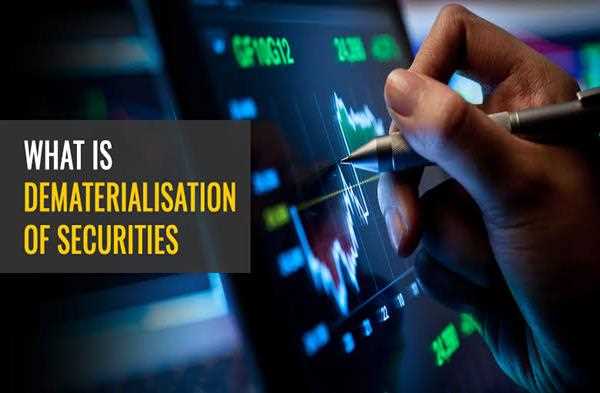Dematerialisation is the process of converting physical securities, such as
shares and debentures, into electronic form. It is a process that involves eliminating paper certificates and replacing them with electronic records that can be stored and traded in a digital format. The term "dematerialisation" is often used in the context of securities
trading, where the process of dematerialisation enables investors to trade in securities in a more efficient and secure manner.
The process of dematerialisation involves the creation of an electronic account with a Depository Participant (DP), which is an intermediary between the investor and the depository. The depository is a centralised repository of electronic records of securities, which facilitates the holding, transfer and settlement of securities in dematerialised form. In India, there are two depositories - the National Securities Depository Limited (NSDL) and the Central Depository Services Limited (CDSL).
To dematerialise physical securities, an investor needs to open a demat account with a DP and submit the physical securities to be dematerialised. The DP then sends the securities to the issuer or registrar, who confirms the authenticity of the securities and updates the electronic records of the investor's holdings. Once the securities are dematerialised, the investor can trade in them electronically without the need for physical certificates.
The benefits of dematerialisation are numerous. First and foremost, dematerialisation eliminates the risk of loss, theft or damage to physical certificates. It also eliminates the need for investors to maintain and manage physical certificates, which can be time-consuming and costly. Dematerialisation also enables faster settlement of trades, as electronic securities can be transferred instantly, compared to physical certificates that may take several days to settle.
Moreover, dematerialisation makes the trading process more efficient and transparent. It enables investors to access their holdings and transaction history online, and also provides real-time information on prices and trading volumes. This enables investors to make more informed investment decisions and monitor their portfolios more effectively.
In conclusion, dematerialisation is the process of converting physical securities into electronic form, which enables investors to trade in securities in a more efficient, secure and transparent manner. It eliminates the risks associated with physical certificates and enables faster settlement of trades. Dematerialisation has revolutionised the securities trading industry and has made investing in securities more accessible to investors across the world.